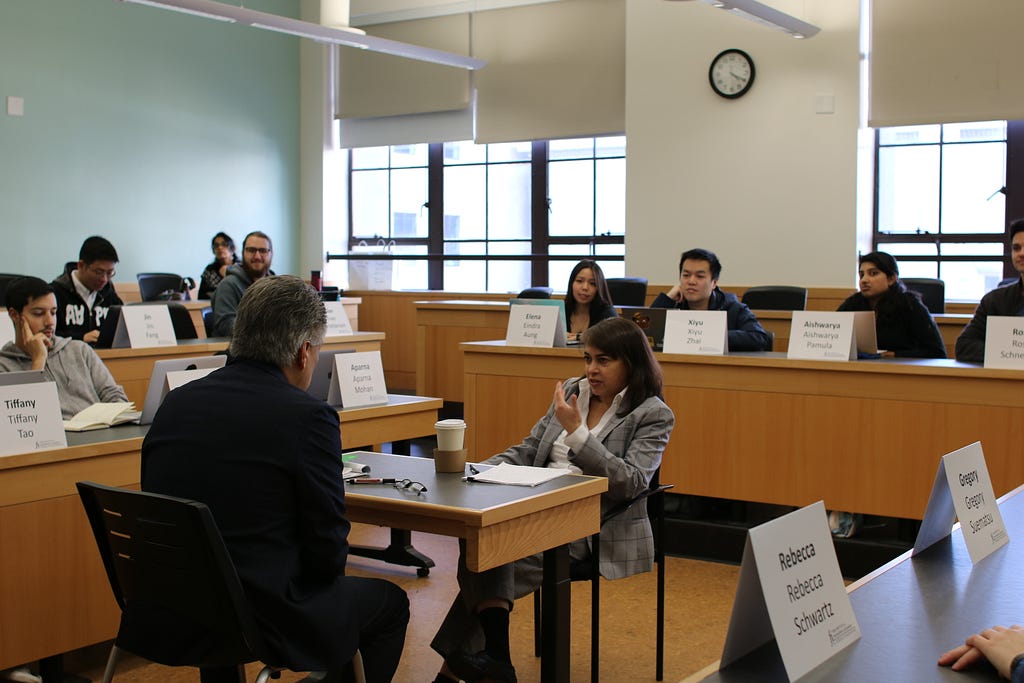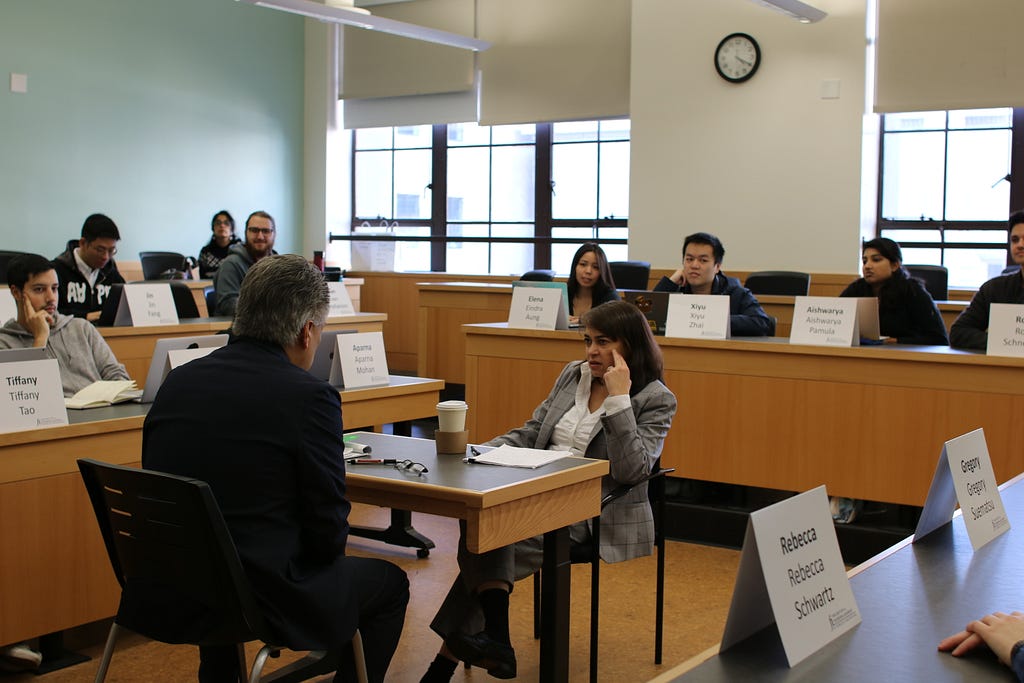By Tiffany Tao, MEng ’20 (ME)
On Tuesday, January 14, 2020, the Fung Institute had the pleasure of hosting Sonia Banerji as a guest speaker for the E270M: Professional Ethics in Technology, Law, and Business, a Spring bootcamp class within the Master of Engineering program. The organic class discussion ranged from topics like insider trading, internal investigations, alcohol in the workplace, and dissecting previous companies with unethical behavior, all which brought Sonia’s legal knowledge and experience in business ethics to the forefront.
Five recurring themes precipitated from our thoughtful discussion:
- Know yourself: Before signing on to a new company, it is always a best practice to picture how you would fit in culturally and if you stand in agreement with the company in their code of conduct. Being self aware and thinking ahead about how to approach situations that might arise is the secret to confident decision making. For example, when asked for her opinion about alcohol in the workplace, Sonia responded that in the right situation, there is room for alcohol events in moderation. Giving yourself a hard limit on how much you can drink and standing by your decision can help prevent risking your reputation.
- Honesty and professionalism is the best policy: In a media technology saturated era it is important to act with integrity on all platforms. Internal investigators are designated experts on rooting out all activity pertaining to the situation. Each person has “so many footprints,” Sonia reminded the class. It is always best practice to stay honest and professional in emails, messaging, bank transactions, and any form of communication for work-related projects. While being honest and professional in work-related matters is a given, the class broached the area of social media, which plays an increasingly prominent role in one’s career. The discussion drew an example from Justine Sacco’s inappropriate tweet about catching Ebola before flying from New York to South Africa, which illustrated how everything posted online is a reflection of oneself and will have an impact immediately or eventually.
- Top-down hierarchy may not be the best structure: In companies that are “top-down,” upper management and executives make decisions that trickle down to employees under their supervision. Drawing on recent cases (e.g. Theranos fraud, Uber’s harassment, discrimination, and retaliation reports), Sonia discussed far reaching the CEO’s role can be. “CEOs are the face of the company, and should be held accountable. They help distribute and allocate the number of resources in departments.” But the CEO’s power to make and change the work environment does not necessarily have to be bound to a specific hierarchy. Depending on the company, a “top-down” hierarchy might not be the most effective way of creating a positive work environment. Whether more top-down or lateral in structure, companies and employees rely on strong internal leadership.
- Companies must track complaints better: When companies insufficiently track complaints, it makes it more difficult for management to be aware of the recurrence of ethical misconduct. Following Uber’s case with Susan Fowler, one of the main recommendations from former Attorney General’s Eric Holder’s report on Uber was for the company to rebuild their complaint tracking system. Laxity in addressing harassment, discrimination and retaliation complaints can sabotage a company. Complaint tracking might seem simple, but is “one of the most important [strategies]” in creating an open and inclusive environment Sonia added.
- Bystanders have a big role: How are employees involved in situations of ethical misconduct? How might they step up? “People who are not managers…junior management, [given] something, like harassment, there will be an expectation for bystanders to come forward. But I think people are reluctant [to do that].” Sonia reiterated that everyone has the power to make an impact within the community of their company. When it is emphasized that responsibility is less a burden than something shared throughout the organization, passivity has less of a role to play.

How to approach ethical dilemmas in the workplace was originally published in Berkeley Master of Engineering on Medium, where people are continuing the conversation by highlighting and responding to this story.

